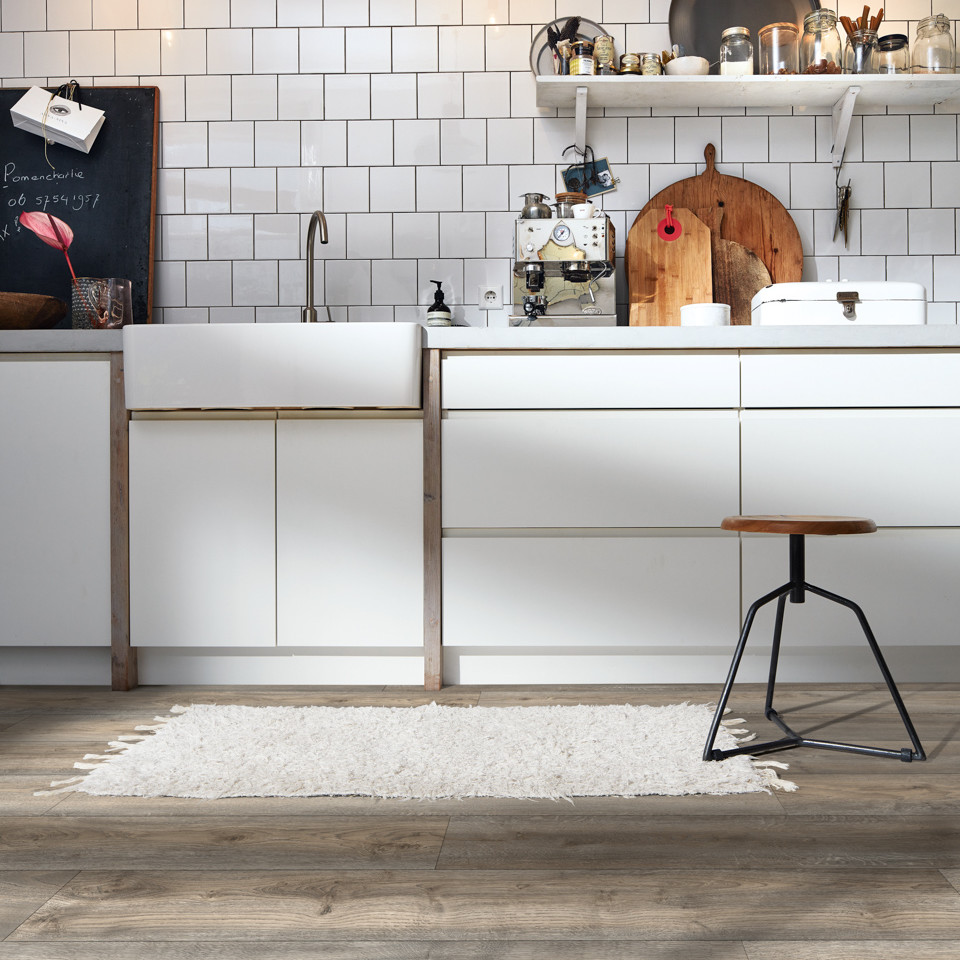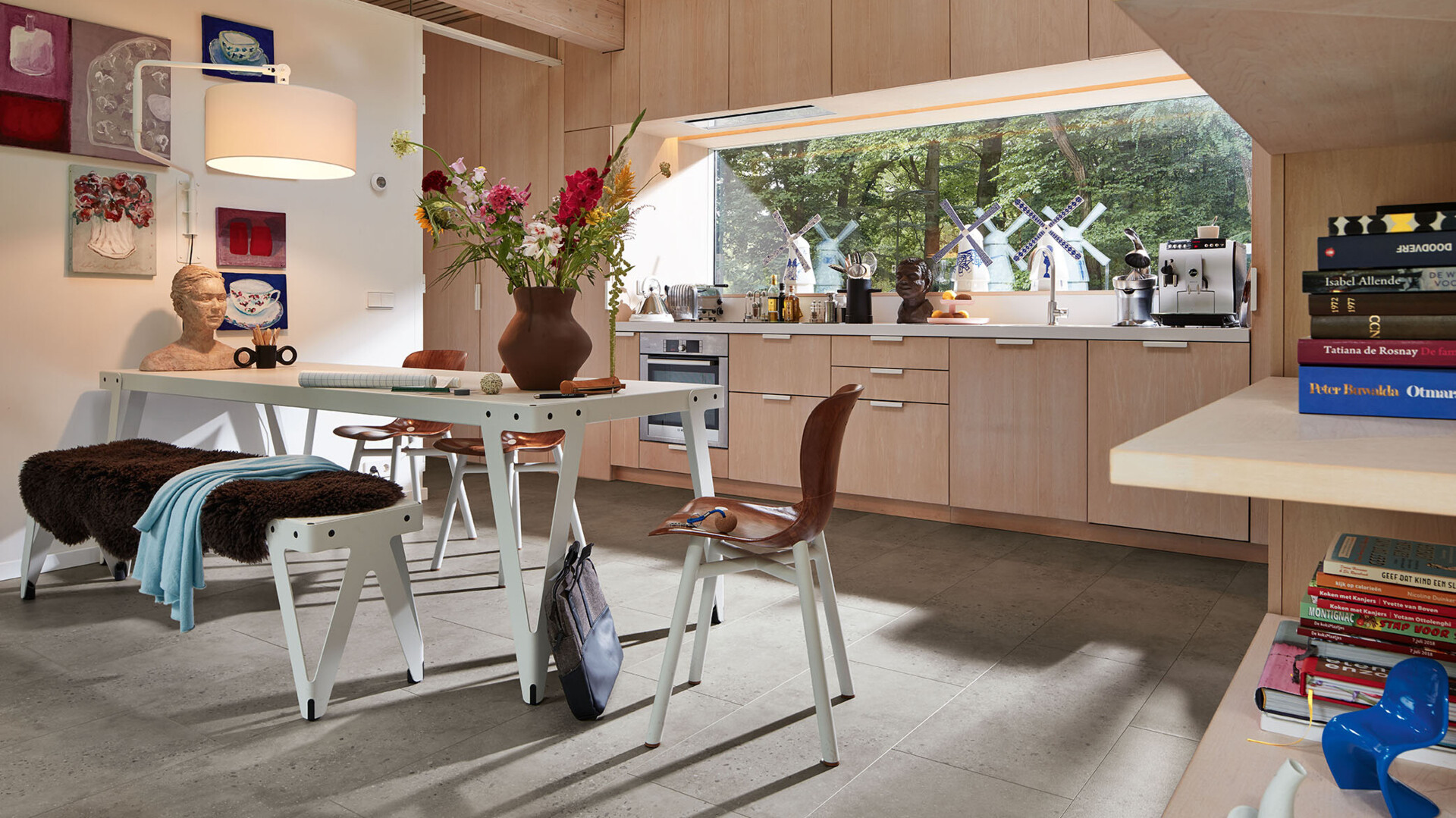
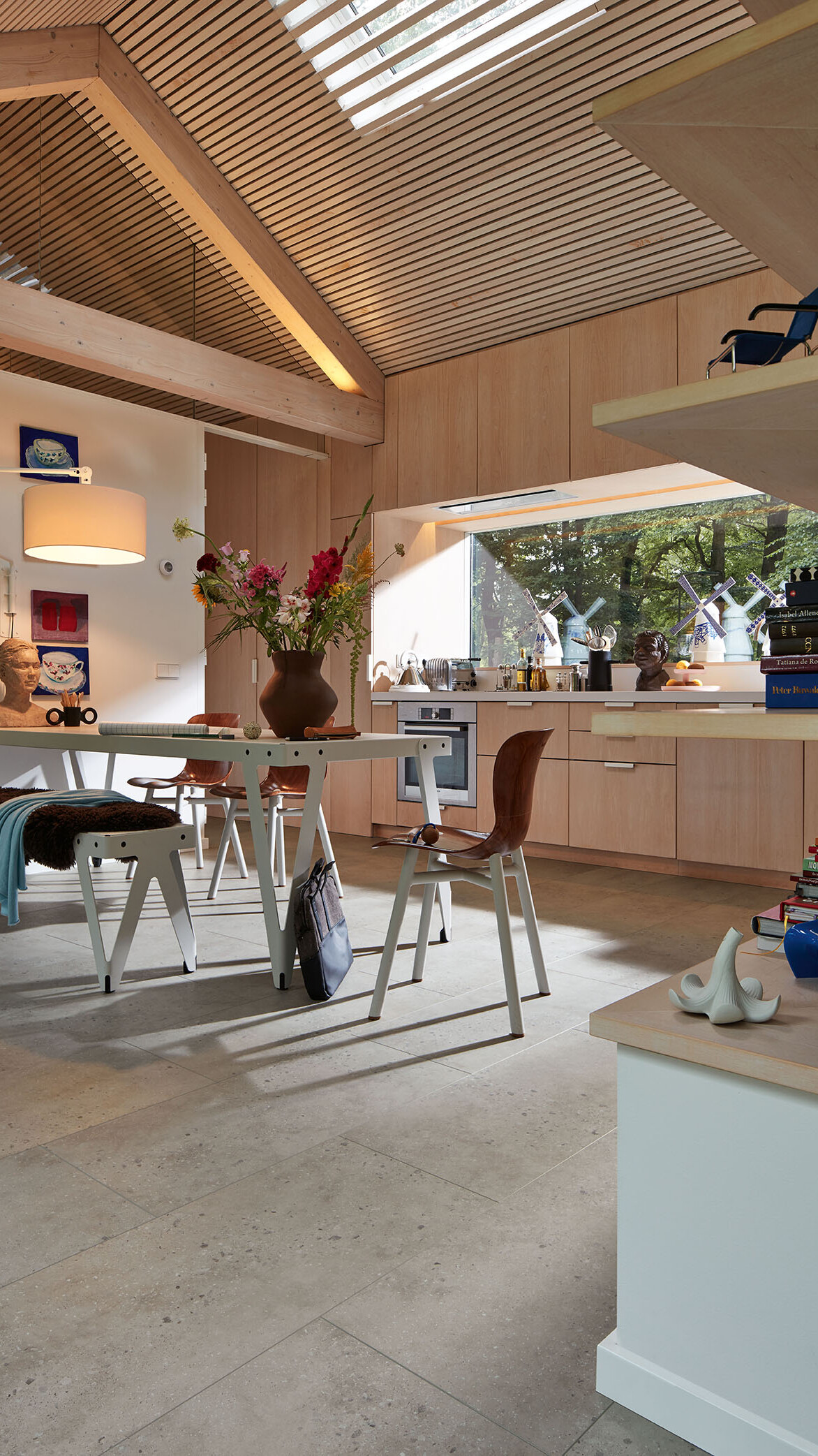

Kitchen and bathroom floors have one thing in common: They have to endure a lot. They should easily cope with spatters of grease, moisture and lots of motion. No wonder so many people choose hard-wearing tiles when designing these rooms. Yet there are alternatives that are not only robust and easy to maintain, but also particularly stylish – such as Meister design flooring.
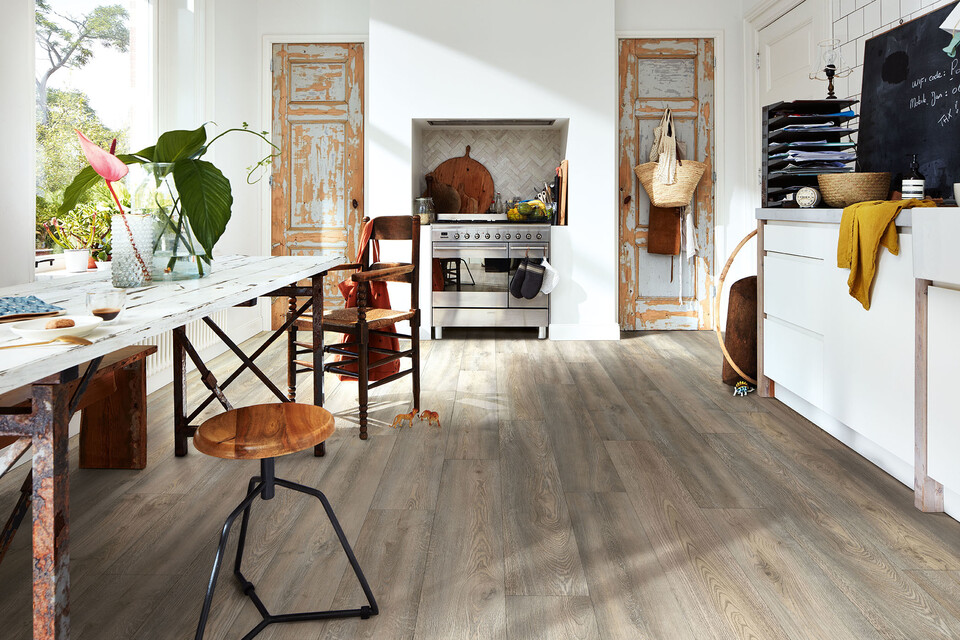
In many homes, the kitchen is the room that’s used the most. Whether cooking, doing homework or a cosy get-together with friends – the kitchen is often the central meeting place of our social lives. This means that the challenges that a kitchen floor has to withstand every day are accordingly high. Stubborn soiling caused by fats, assorted liquids or a variety of colourful foods must not leave any residues. This is why floors that can easily be wet cleaned are best for good hygiene. In addition, the flooring must not wear out from frequent foot traffic and moving chairs and should also be antislip.
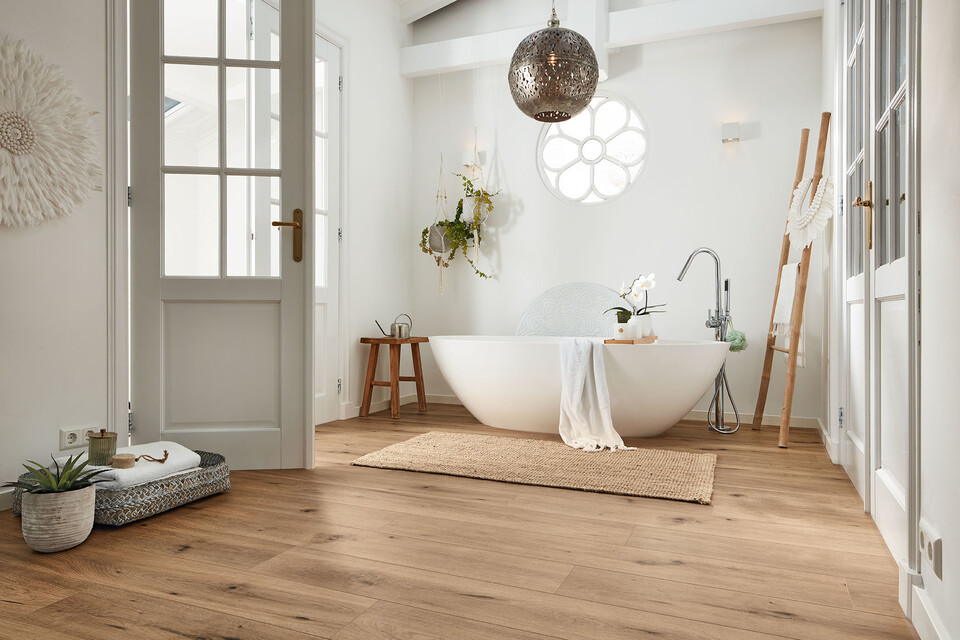
Moisture, splash water, blots of cosmetics – a bathroom floor has to be able to withstand conditions just as demanding as a kitchen flooring. Water should not be a problem, and it should provide good grip even when wet. Especially in small bathrooms without windows, reliable water resistance plays an important role, as humid air stays in the room longer and causes unsuitable materials to swell. Moreover, most cosmetics contain fats and oils. If these find their way onto sensitive surfaces, such as untreated wood, stains are created that are difficult to remove. For these reasons, the ideal bathroom floor is waterproof, antislip and easy to maintain.
For the above-mentioned reasons, it's well worth considering in advance which flooring the kitchen and bathroom should be installed. The following floors have been successfully tried and tested for use in both rooms:
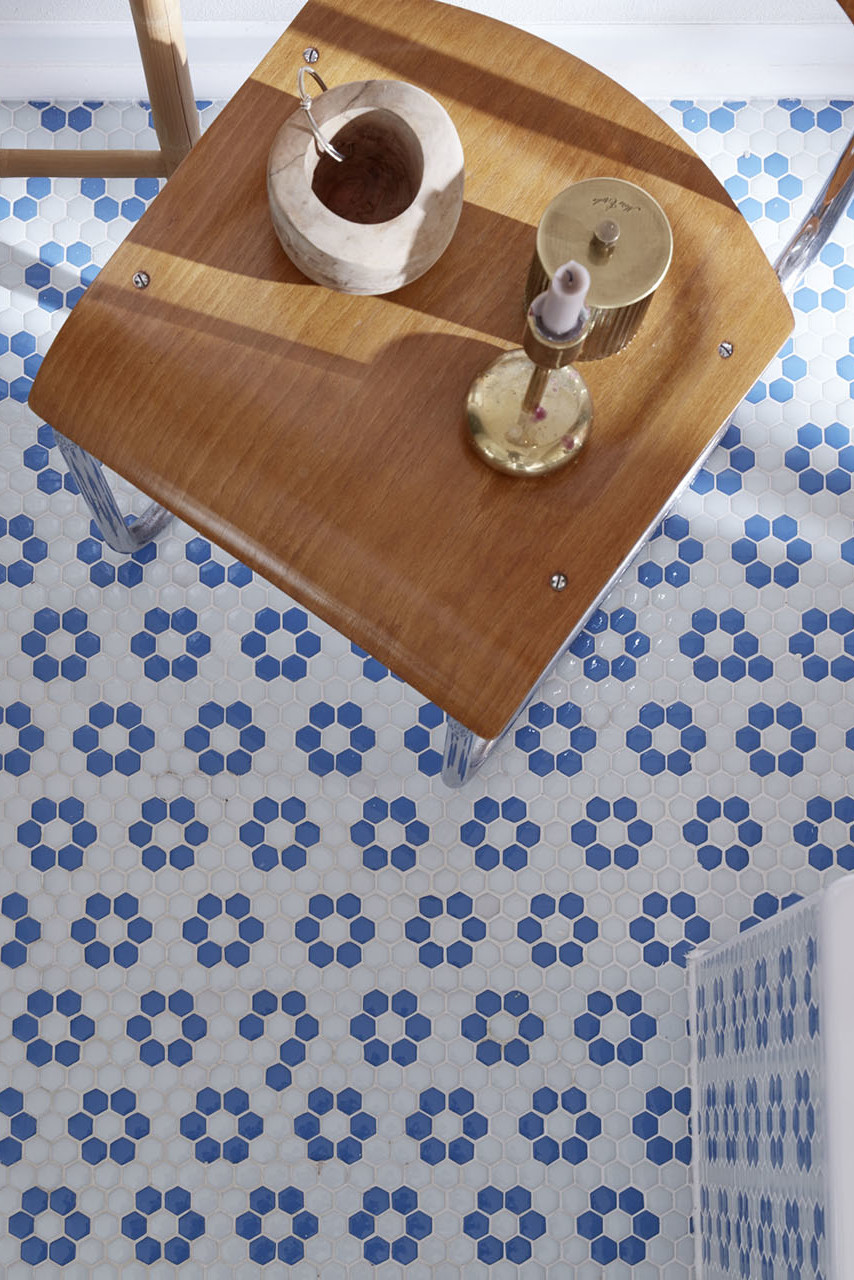
Ceramic tiles are available in three different types, which differ among other things in the amount of water they absorb: earthenware, stoneware and fine stoneware. Earthenware tiles have relatively large pores and absorb the most water. Therefore, glazed earthenware or the less porous stoneware tiles are recommended for kitchens and bathrooms because they are dirt-repellent and easy to maintain. Fine stoneware tiles have the highest density and absorb the least water.
Hygienic cleaning, with a steam cleaner for example, is not a problem. Furthermore, tiles are easily compatible with most conventional cleaning chemicals. Unglazed tiles absorb dirt more easily and suffer from scratches more quickly. On the other hand, they don't need to be polished and are slip-resistant. Slip resistance is an important selection criterion for tiles, especially in rooms often exposed to moisture. Without underfloor heating, tiled floors are always quite cool, something particularly noticeable in winter.
Natural stone floors are increasingly being laid in kitchens and bathrooms as a luxurious alternative to tiles. Materials such as marble, sandstone or granite are particularly suitable. They're also resistant to humidity and are generally easy to clean. Careful, though: some natural stones are sensitive to acids and abrasive polishes. It's worth asking an expert for advice on proper maintenance in advance. Just like tiles, natural stones are also considered hard flooring. Falling heavy objects made materials such as glass or porcelain can burst on impact and even leave cracks in the floor, which are difficult and expensive to repair – by replacing the affected base plate, for example.
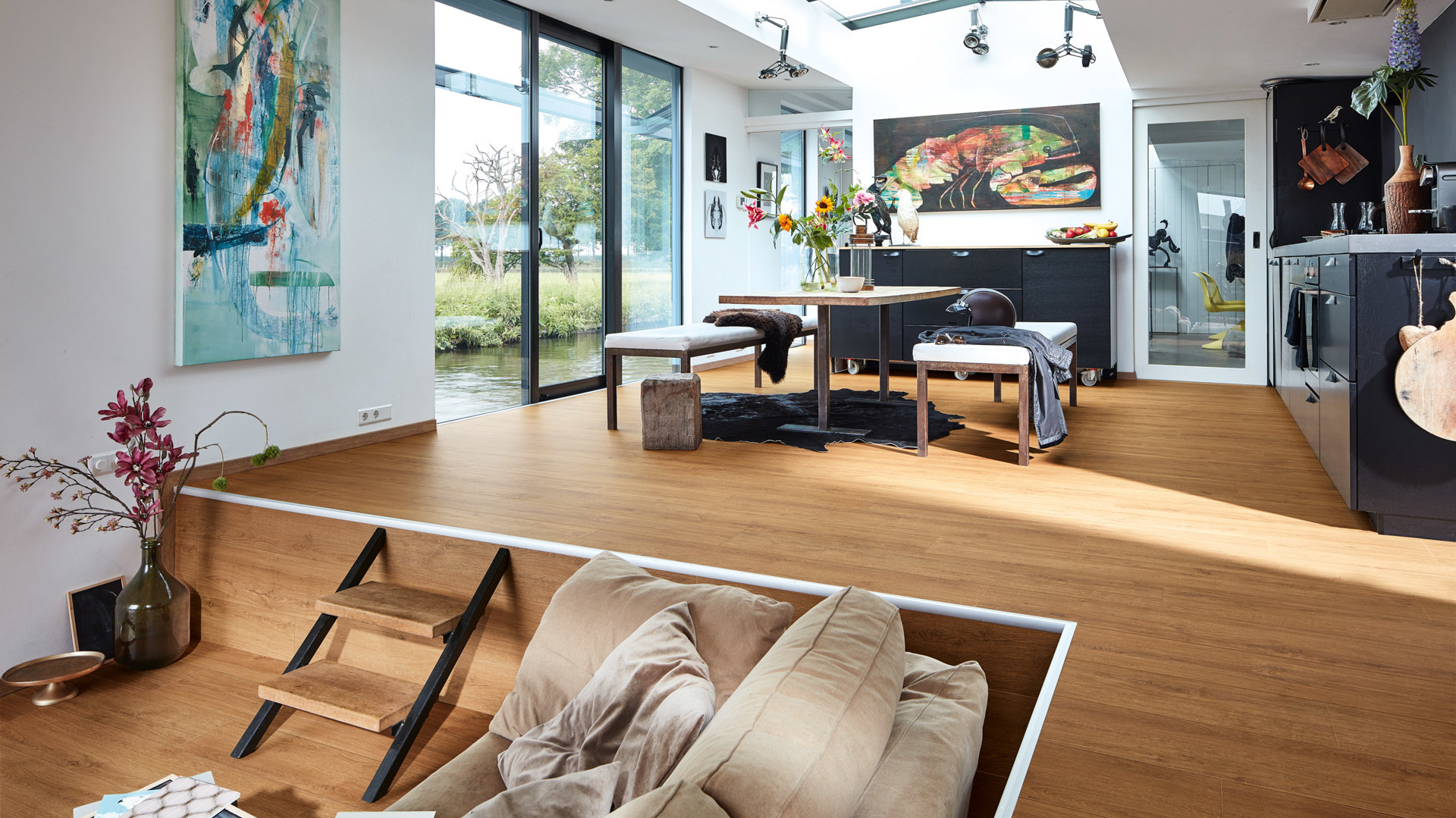
Many people still opt for tiles or natural stone flooring in their bathroom and kitchen. However, to create a cosy and pleasant atmosphere, elastic flooring is now also available that meets all the necessary functional criteria as well as adding warmth and comfort to the room. For example: design flooring in an authentic wood or stone look.
If you're looking for a comfortable alternative to tiles and natural stone that's warm underfoot, we recommend MeisterDesign design flooring. It combines all the positive properties of a vinyl floor, yet does not contain any PVC (polyvinyl chloride) or harmful plasticisers. This modern design flooring is available in a wide range of authentic wood decors and stone looks, which thanks to their tactile structures are hardly distinguishable from the original.
While tiles and natural stone need laborious gluing and grouting, the design flooring is equipped with a modern click system that makes installation simple. Waterproof versions are available in both the MeisterDesign. life and MeisterDesign. pro collections, which are particularly suitable for use in bathrooms and kitchens. These design floors are very durable and just as easy to maintain as tiles.
